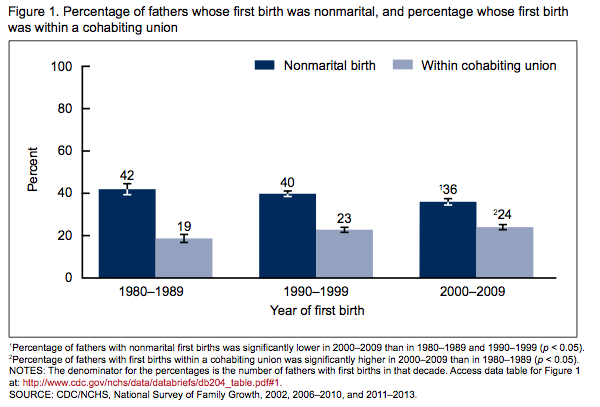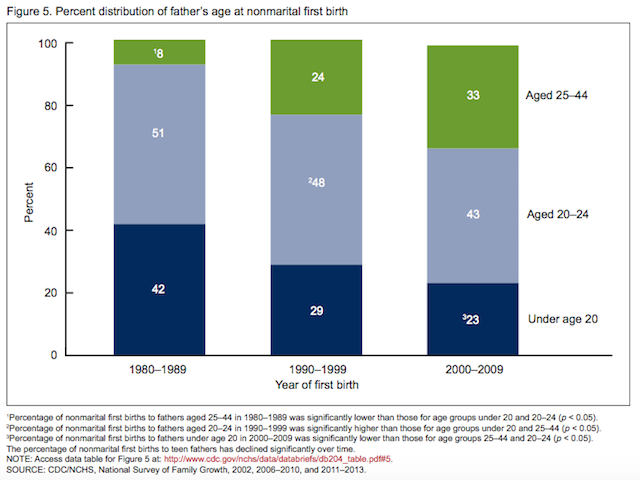Highlights
Editor's note: See update at the bottom of the post.
A data brief put out by the National Center for Health Statistics last week presents a surprising finding: Fewer men are becoming fathers for the first time outside of marriage.
Forty-two percent of new dads in the 1980s were unmarried, versus 40 percent in the 1990s and 36 percent in the 2000s, CDC researcher Gladys Martinez documents. Over the same period, a rising share of first births took place within cohabiting relationships, as this figure shows: 19 percent of new dads were cohabiting in the 1980s and 24 percent in the 2000s.

It's not clear from the brief how this change is reconcilable with the well-documented increase in nonmarital births overall between the 1980s and the 2000s. However, looking at a measure of men's first births next to a measure incorporating all births would be comparing apples to oranges; we would need to look specifically at women's first births to learn what's going on.
The NCHS brief also reported on trends related to first-time fathers' age and race/ethnicity. As women have delayed becoming mothers, men seem to have delayed becoming fathers. In the 1980s, 93 percent of men's nonmarital first births took place among men age 24 and under; by the 2000s, that number had dropped to 66 percent.

African-American men are more likely than Hispanics or whites to become fathers for the first time outside of marriage, but they were the only subgroup of the three whose proportion of new dads who were unmarried declined over time to a statistically significant degree. You can access the full brief on the NCHS website—and here's hoping the center soon puts out a similar report on the parallel numbers for women.
Update, 6/9/15: Multiple demographers have called into question the findings of the NCHS brief because of a problem with the survey data it used: The first male survey was conducted in 2002, and only men ages fifteen to forty-four at the time were interviewed. The survey cannot be used to draw accurate conclusions about the fertility of men who were fifteen to forty-four years old in the 1980s. For further details about the problem, see Philip Cohen's explanation here.













